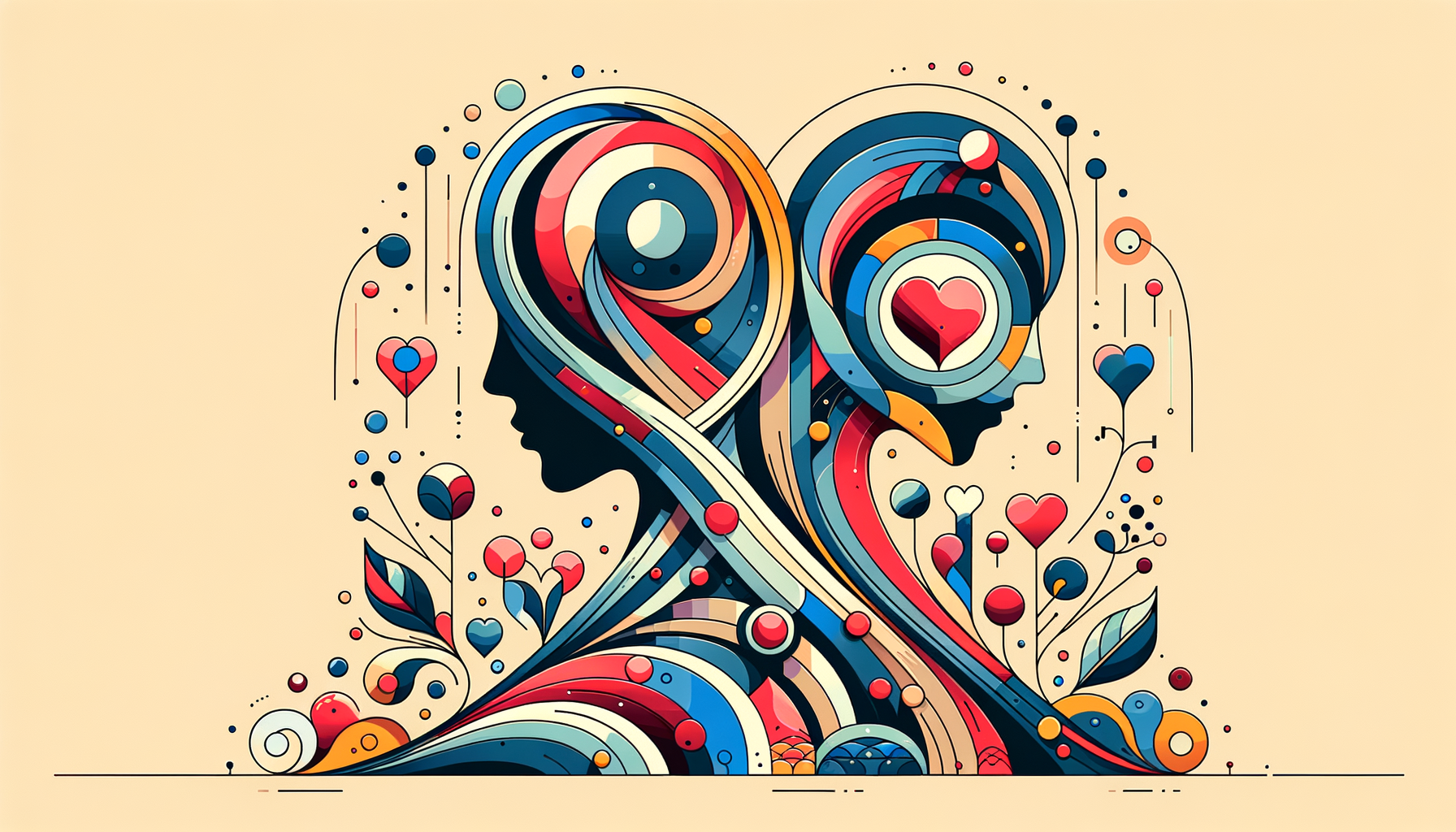Finding Your Way Back: What ‘Relationship Detours’ Can Teach Us About Losing & Rebuilding Connection
Just like a horse that spooks at a rattling fence, relationships can have their moments of unexpected chaos—veering off the trail you thought was steady as a dusty Montana path. And while heartbreak and “where did we go wrong?” reflections aren’t as glamorous as the latest prestige rom-com on Netflix, they happen to all of us. Fortunately, missteps in love aren’t wasted time. They’re the lessons you didn’t ask for but desperately needed—kind of like losing your keys and realizing how overdue you are for decluttering everything.
Let’s saddle up for a journey into relationship detours—why connections sometimes go beautifully awry and, more importantly, what we can learn when they do.
Love Isn’t a Straight Line (And Thank Goodness for That)
When I was 21 and fresh out of college, I dated a guy who was—and I mean this in the nicest way—a human Labrador retriever. He was effervescent, adventurous, and endlessly charming with strangers. It was impossible not to like him. Problem was, every dinner date turned into us entertaining fifteen people he “happened to run into.” Walking through downtown Missoula with him felt like being tethered to an eager pup who couldn’t decide which fire hydrant to sniff first.
Don’t get me wrong—he was phenomenal. But I realized—two chaotic, overstimulated months into our whirlwind—we simply had mismatched needs. Where his spark came from non-stop interaction, mine kinda needed to recharge in solitude, staring at pine trees and listening to wind. I wasn’t the partner he deserved, and he wasn’t the calm my heart was looking for at the time.
The breakup was mutual and, surprisingly, full of warmth. I learned then and there that not every romantic misfire is a heart-shattering experience. Sometimes, it’s just like realizing you brought trail mix but forgot the water bottle. Inconvenient? Yes. Fatal? No. Some detours are just exercises in refining what we really need in love and life.
Red Flags Aren’t Scary—They’re Map Markers
We’ve all been told to watch for “red flags” in potential partners. And while it’s excellent advice, the term has become so overused it’s practically lost its meaning. Procrastinating on taxes? RED FLAG. Prefers pineapple on pizza? RED FLAG.
In one relationship, though, I discovered something important: red flags aren’t scary—they’re like little peeling highway signs pointing toward who someone is. The trouble only comes when we try to read them wearing rose-tinted glasses.
A few years ago, I dated someone who claimed he loved that I was independent. He even said I was “badass” for handling my career and personal life without leaning too heavily on him. But slowly, his compliments started to sound oddly dismissive—like he was sidestepping opportunities to meet me halfway. Plans shifted to my house instead of his small-town apartment. Dinners were suddenly “whatever you want, babe.” I first thought, Wow, this man appreciates my autonomy! What a dreamboat.
Spoiler alert: It wasn’t actually appreciation. It was avoidance. Eventually, I looked around and realized I wasn’t sharing my life or receiving partnership—I was hosting someone else’s. Recognizing that wasn’t a red flag to mourn; it was a neon sign screaming YOU CAN ASK FOR MORE.
When we learn to embrace red flags not as warnings to stay frozen but as signals to ask questions and recenter our boundaries, we stop fearing them. They become tools for sharpening what we expect and deserve from connection.
The Art of the “Well, We Tried”
There’s a peculiar kind of intimacy in failed relationships. Like laughing with someone after trying to cook with expired milk and realizing the resulting disaster is no one’s fault—it just wasn’t meant to work. A good way to tell when you’ve had one of these “well, we tried” connections is if you look back and laugh about it more than you cry.
In my late 20s, I dated a wildlife photographer. On romantic walks, he would suddenly halt mid-sentence—like a prairie dog catching wind of a predator—and start angling his camera lens at something I couldn’t see. Once, he crouched beside a heavily trafficked hiking trail for twenty minutes, waiting for a deer to reappear. I, holding onto his granola bar and wondering if I was being more snack pack mule than girlfriend, felt an epiphany nudge its way into my consciousness: We don’t want the same life.
That relationship didn’t feel like heartbreak at its end; it felt like recognizing that two incredible people can enjoy a shared chapter without staying stuck in the same book. Sometimes, endings aren’t failures—they’re mutual understandings. Letting go with grace is its own kind of success.
Takeaways From the Trail (Because Every Journey Needs a Map)
After a few detours and “whoops, this isn’t right” connections, I’ve learned that there’s always wisdom hiding in the experience—like buried treasure under Montana snow. Here’s what I’d grab from my own saddlebag of love lessons:
- Know what recharges you. Everyone has different needs in love. Time alone makes me feel alive again; time with people fuels others’ fire. Pay attention to the contrast between what excites you versus what depletes you.
- Compromise doesn’t mean self-erase. It’s okay—and necessary—to bend for someone you love. But good love bends both ways. If you’re constantly accommodating without seeing effort on their end, you’re not dating a partner; you’re dragging dead weight.
- Keep kindness, even at the end. Breakups don’t have to feel like the emotional equivalent of flipping a Monopoly board. Parting ways respectfully not only honors your shared time but helps you down the road—both in moving on and trusting the process again.
- Trust your gut. Sliding past the uncomfortable truths our intuition whispers usually leads to more discomfort. If something feels a little “off,” lean into it. Reflect, ask questions, and reset expectations as needed.
- Laughter is always a good sign. If you can find humor in the mess-ups—during or after—you’re attuned to what’s real. A relationship worth keeping usually feels sturdy enough to survive a few laugh-at-yourself moments.
The Journey Makes the Rider
Here’s the thing: No one gets through life without relationship failures. It’s no different than falling off a horse—you brush off the dirt, assess the situation, and, provided you weren’t foolishly riding bareback without reins (been there), climb on again.
Through it all, don’t forget that love’s learning curve carves who we become. Each detour adds depth. And just like Montana’s trails, sometimes the ones you weren’t planning to navigate are where you’ll find the scenery truly worth savoring.
So here’s to crafting connection—blunders, bumps, and all. You might end up taking a lot of surprising turns, but you’ll never come back unchanged. Even in the wilderness of not knowing, the journey itself is the reward.




















